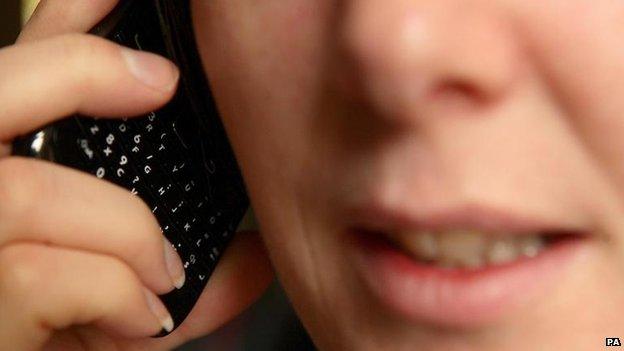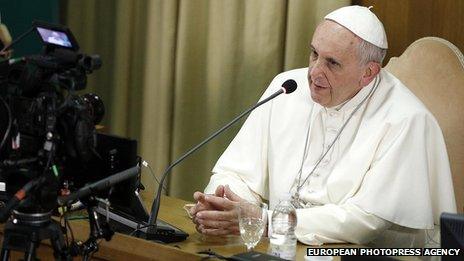UN urges UK to make smacking illegal
- Published

Under current laws "reasonable chastisement" to control a child's behaviour is allowed
The UK should pass laws to ban parents from smacking their children at home, a United Nations report, external has suggested.
The UN recommended that the UK "put an end to corporal punishment in all settings" and encourage non-violent forms of discipline instead.
A government spokeswoman said they did not wish to "criminalise parents for issuing a mild smack".
The report also urged the UK to review counter-terrorism powers and raise the age of criminal responsibility from 10.
They were among the recommendations issued by the UN Human Rights Committee, which has published an assessment of legal and cultural issues in the UK.
'Harmful effects'
The report said the government "should take practical steps" including "legislative measures where appropriate" to end corporal punishment.
It suggested the government should "conduct public information campaigns to raise awareness about its harmful effects".
Under current laws "reasonable chastisement" to control a child's behaviour is allowed, but parents can be prosecuted if their actions result in injuries such as bruises, cuts or scratches.
The report also suggested a review of counter-terrorism legislation because of concerns about measures introduced to combat the threat of violent extremism.
Powers to temporarily seize passports of those suspected of planning to travel abroad to engage in terrorism and relocate terror suspects were among those singled out.

The UN wants a review of the regime regulating the interception of personal communications
The report said the government should consider reducing the maximum period that a terrorism suspect can be detained before charge, which stands at 14 days.
It said there should be an end to the "blanket denial of bail" to those arrested under terrorism legislation.
Another recommendation urged the UK to review the regime regulating the interception of personal communications and the retention of communications data.
The report called for current investigatory powers laws to be revised so access to communications data is "limited to the extent strictly necessary for the prosecution of the most serious crimes".
A Home Office spokeswoman said: "We believe the UK's counter-terrorism legislation strikes the right balance between privacy and security and has, where appropriate, been upheld by the ECHR [European Court of Human Rights].
"At a time of very significant threat, it is vital police have the powers they need to protect the British public."
She said legislative proposals are being drawn up on investigatory powers.
- Published10 June 2015

- Published8 March 2015

- Published3 March 2015

- Published6 February 2015
